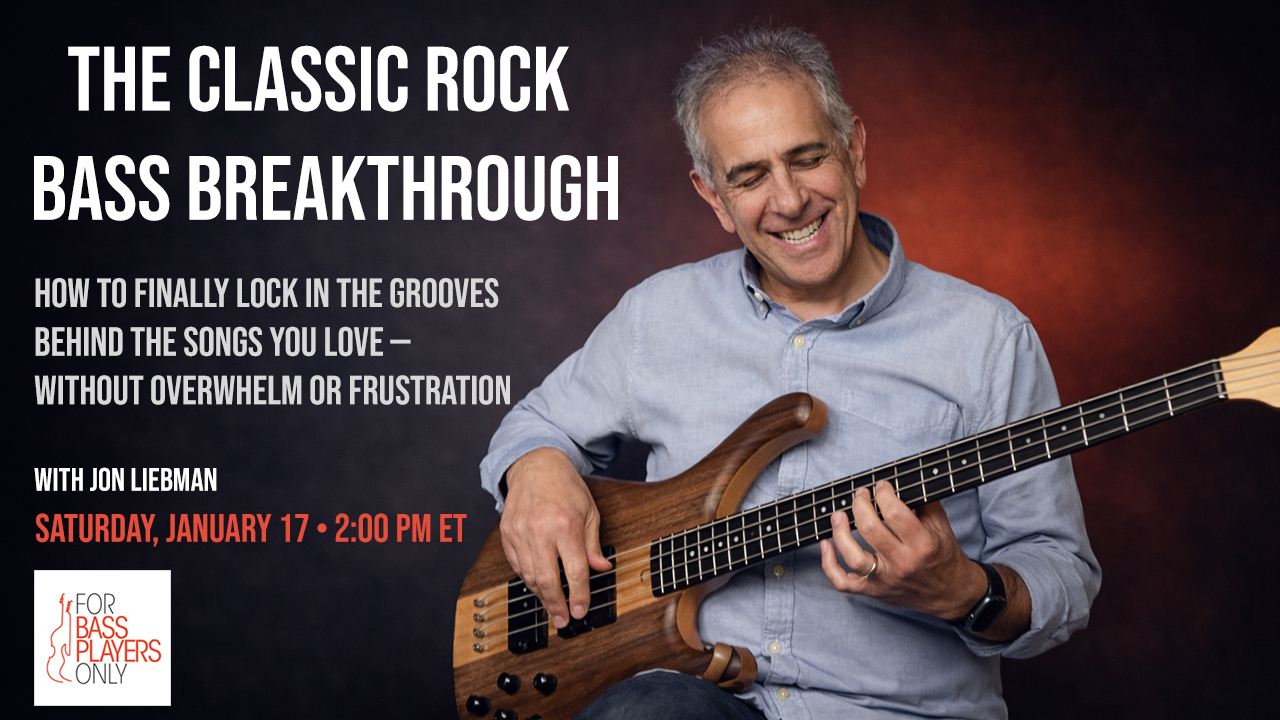Being true to ourselves, while paying homage to the past
January 2, 2019
We all have music that’s especially meaningful to us. Certain sounds have a way of bringing about powerful emotions, more so than anything else. I’ve even heard it said that the music we listened to in high school has the biggest impact on us throughout our lives.
But what about the music that came before that? And, in turn, before that?
Can music be totally, one hundred percent original? What brought about all the transitions, from Gregorian chants to Renaissance music? From Baroque to Classical? Romantic to Twelve-tone? Dixieland to Jazz? Big Band to Bebop? Blues to Rock, Funk, Electronic and a thousand other forms of music?
Obviously, somebody heard something, modified it, experimented with it and came up with new versions of whatever came before. New sounds, new feels. And yes, new grooves.
 Each generation of bassists offers inspiration for the future of the art
Each generation of bassists offers inspiration for the future of the art
The same thing, of course, can be said of bass players. What was the standard for bass playing before Hadrien Feraud and Victor Wooten came along? Before Stanley Clarke and Larry Graham? Before James Jamerson and Jimmy Garrison? Before Scott La Faro and Jimmy Blanton? Even before Giovanni Bottesini and Domenico Dragonetti?
The point is, you can keep tracing music back for centuries, making new discoveries at every juncture. And no matter how far back you go, you’ll always find the ability to weave an imaginary thread throughout each metamorphosis, seeing – and hearing – how each generation inspired the next.
In this week’s interview, bassist Jon Moody discusses his solo release, Music For Our Hands, an album of unaccompanied solo bass. In describing the work, Jon humbly pays tribute to the musical predecessors who set the stage for countless subsequent musical “jumping off” points.
Jon comes by it honestly, too. He tells the story of how his mother, an orchestral string bass player, “exposed” him to classical music, all the way back when he was a fetus in her womb. She would hold the bass close to her body as she performed, Jon says, citing the famous “Mozart in utero” theory of early brain development. Jon did develop an appreciation for classical music; Music For Our Hands was at least partially inspired by Bach’s suites for unaccompanied cello, he says. Additionally, he has a list of prominent bass players he finds inspiring, including everyone from Slam Stewart to Michael Manring.
Jon also expresses his admiration for Allman Bros bassist Oteil Burbridge, another influence. Moody says he appreciates the way Burbridge always remained true to the Allmans’ original bassist Berry Oakley, while tastefully injecting “just the right amount” of his own style and personality into the music.
Throughout the interview, Jon’s respect for his predecessors, and his desire to pay homage to what came before, were part of a constant, underlying theme. Music is forever evolving, each generation moving things in new directions. As we continue to develop new forms of music and new styles of self-expression, let us always remember and appreciate the past and the influential musical minds that brought us to this point.
Have a thought on the subject? Leave a comment and let me know what you think.
In the meantime, check out our interview with Jon here.

 Each generation of bassists offers inspiration for the future of the art
Each generation of bassists offers inspiration for the future of the art



